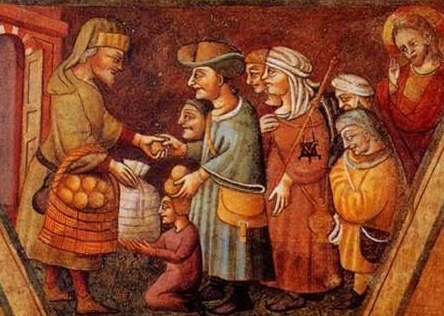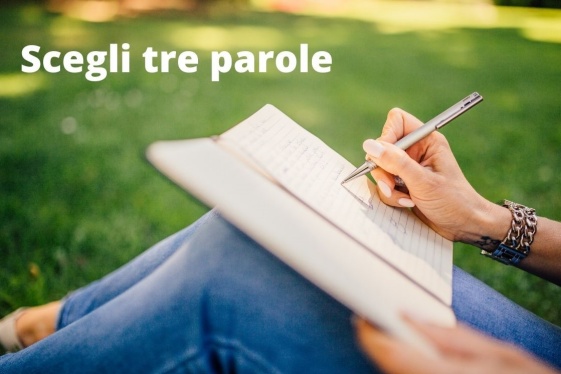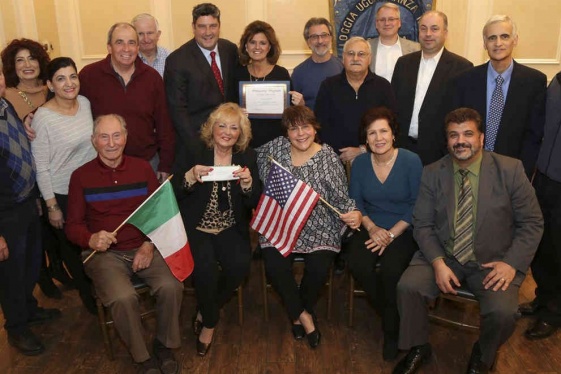

WTI Magazine #77 2016 March 18
Author : Giosuè Prezioso Translation by:
According to the Californian neuropsychiatrist Louann Brizendine, the amount of words pronounced on a daily basis by women and men is very diverse: the former, in fact, can use until 20 thousand terms, the latter only 7 thousands, basically a third. Among these words, there are some other that, more frequently, appear with a certain regularity. Interestingly, in English and Italian "Grazie" e "Prego" ("Thanks" and "Your Welcome") occur very often, as words expressing gratitude and gratefulness.
According to "Word Frequency Data", the word "Thank" (as a verb) ranks 498 out of the 5000 most used in English. With less precision, the word "welcome" (from "You are welcome") ranks 1555, which means a lot, in a language made up of 1, 022, 000 words (according to a study by Google and Harvard University). In a list created by "About Education", instead, the Italian "grazie" ranks 76 out of 100 words, a datum that cannot be found with "Prego" and the affine "a te"("to you").
However, the meaning of "Grazie" and "Prego", "Thanks (you)" and "You are Welcome" differs in the two languages. Coming from the ancient Greek charis and charitòs, and meaning "pleasure" and "pleasing", the two words originate from the verb charìzo(mai), meaning "to make someone happy", "to gratify". This means that, "Grazie", is meant to convey expressions like: "you made me feel good", "you gratified me", "you gave me pleasure". In English, instead, "Thank" comes from the Indo-European root "tong", which is the progenitor of the modern verb "think". Therefore, "Thank You" should be interpreted as "I will think about this", "I will remember it", "I will keep it in mind".
On the same line, the Italian expression "Prego" comes from the Latin words prece and prex, literally meaning "prayer". The use of "prego" derives from the Latin idiomatic use of expressions like "longum diem precari" ("I wish you [have] a long life") or "preco", from which "Prego" directly draws. In Old English, "welcome" comes from the two words willa and cuma. Willa means "pleasure" (but also "pleasant"); cuma, instead, signifies "guest", "stranger", and "foreigner". "You-are-welcome" indicates that the person to whom we are offering a good/our help is like a foreigner, a stranger, or more generally a guest, to whom we are gladly giving a warm welcome, a shelter, our help.
Despite being the same words, "grazie", "prego", "Thanks", and "You are welcome" do have different meanings. In Italian, both the expressions come from a very religious lexicon, implying the idea of gratefulness, prey, and reciprocity; in English, they rather evoke a spiritual image, from which evaporates a an idea of hosting, welcoming, and thinking, appreciating. The word "welcome" (meaning "to please a guest"), for instance, seems to come from an insular tradition - the U.K. is, de facto, an island - where people host new guests, foreigners, and wanderers, making their culture used to "the other" as a pleasant presence, a willa-cuma: welcome! In Italian, the Church seems to have influenced the way to express gratefulness and return, pronouncing two words which refer to prayer and religiosity.
Probably expressing the nature of their own geography, history, and culture, English and Italian have coined two words that, though being different, share the same sense of religiosity, warmth, and gratitude.
You may be interested
-
Italian world language teacher 2015-2016
FRAMINGHAM PUBLIC SCHOOLS - JOB DESCRIPTION TITLE: World Language Teacher - Italian...
-
'Italy Stay Strong': What The Coronavirus Eme...
On the northern coast of Sicily, looking out toward the magnificent Aeolian Islands, Milaz...
-
‘Carnivale’ doubles as event to persuade YSU...
Lent begins next Wednesday but the Italian community of Youngstown celebrated their own Ma...
-
‘Il Canto degli Italiani’: What the Italian n...
The Italian football team and its fans are known for belting out rousing renditions of the...
-
‘In Other Words’ review: Jhumpa Lahiri’s love...
By Howard Norman Jhumpa Lahiri lived with her family in Rome in 2012. Though she...
-
‘Let’s Choose Three Words’: the Project dedic...
‘Let’s Choose Three Words’ is a new educational project promoted by the Ministry of Foreig...
-
‘Living in Rome’ talk accompanies Italian din...
An Italian Dinner and Talk on "Living in Rome: Duties, Distractions and Delights" will be...
-
‘Sons’ save Primavera program
A community program providing supplemental education in a foreign language to community ch...













